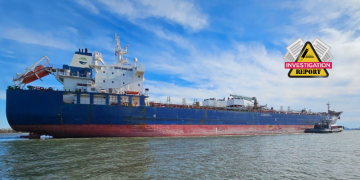According to the STCW Convention, officers must hold a valid certificate of competence to ensure they meet the minimum requirements of competence, seagoing service time, medical fitness and age. Also, ancillary certificates are required such as radar or ARPA, GMDSS, and those referring to safety duties onboard specific types of ships.
- STCW Convention at a glance
- STCW Convention: Terms and Definitions
- Certificates needed for compliance with STCW
- How seafarers can get their STCW certificates
- STCW Convention: General requirements for officers
- STCW Convention: General requirements for ratings
- STCW: How to obtain a certificate of competency as Master
- STCW: How to obtain a certificate of competency as Chief Mate
- STCW: How to obtain a certificate of competency as Navigational Watch
- STCW certificates according to function and type of vessel
- Training issues under STCW: What you should know
- STCW: Certificates and documentary evidence needed onboard
- Alcohol and drug consumption onboard: Taking prevention measures
- STCW: Setting the hours of rest for watch personnel
In addition, the STCW Convention includes chapters to provide details of the exact requirements and standards of competence for each certificate as follows:
- Chapter II – master and deck department)
- Chapter III – engine department
- Chapter IV – radio personnel
- Chapter V – training requirements for personnel on certain types of ships
- Chapter VI – emergency, occupational safety, medical care and survival functions
These chapters should be read in conjunction with the respective section of part A of the STCW Code.
Certificates for masters, officers and radio operators must be endorsed by the issuing administration and re-validated at intervals not exceeding five years. Other certificates for specialized training are subject to refresher training.
Officers serving on ships registered under the flag of a foreign country, they need an endorsement of recognition issued by the administration of that country. Some administrations may also require an endorsement of recognition for specialized training certificates.
Officers who opt for the next higher certificate, they will need to meet a number of requirements, including approved training and education, minimum age, approved seagoing service and medical fitness.
Duties on joining a ship
Before being assigned any shipboard functions, Officers need to have completed a period of ship-specific and security familiarization training. There is no certificate awarded for this, but a record of the training should be kept in the ship’s official logbook. This requirement applies to any member of the crew, including hotel staff holding officer rank in passenger ships.
[adrotate banner="304"]
Basic safety training
Officers serving on any type of ship who are designated with safety and pollution prevention responsibilities in the operation of the ship need basic safety training. Furthermore, such training should be documented as having taken place within five years of the officers being assigned to their duties. This requirement applies to practically all officers serving on merchant ships. Cadets assigned with these duties also need to complete basic safety training before going to sea.
As per STCW Convention, Officers’ basic safety training must cover:
- personal survival techniques
- basic fire prevention
- fire fighting
- elementary first aid
- personal and social responsibilities.
From the above, officers should do hold documentary evidence to demonstrate competence in these functions within the previous five years. For example, this may be in the form of record of drills or letters from a training centre.
STCW 2010: new requirements
The revised convention has introduced bridge resource management and engine resource management requirements for senior officers and leadership and management skills within their certificate and therefore, companies should be responsible for providing training in these areas. Where the company requires to carry an electro-technical officer, they should comply with the new competency requirements under A-III/6.



























































